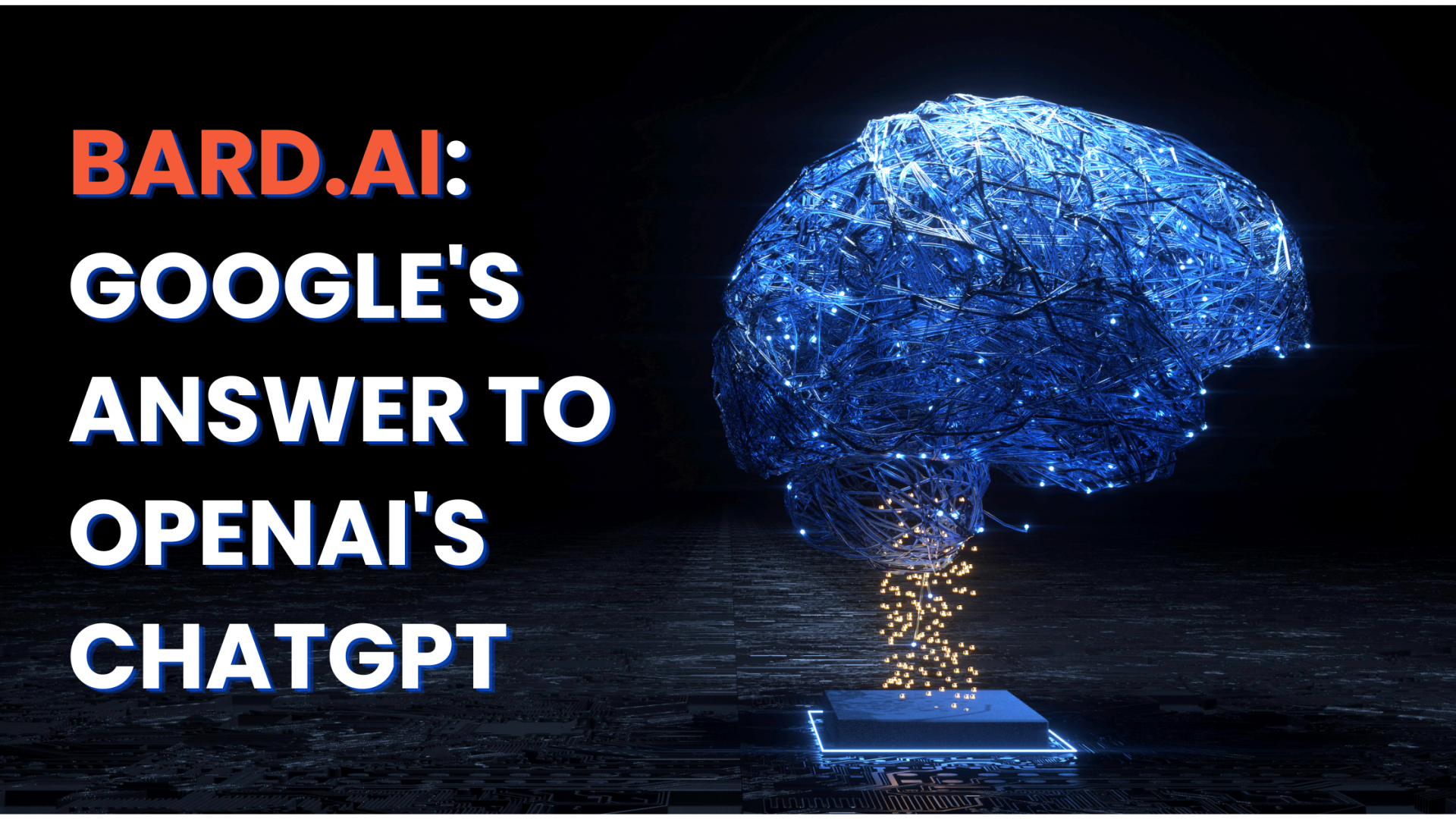Blogs
To know about all things Digitisation and Innovation read our blogs here.
Artificial Intelligence
Bard.AI: Google’s answer to OpenAI’s ChatGPT
SID Global Solutions
7 February 2023

Google has been conducting research for years, to create a product that aids in the creation of information for the benefit of mankind. For instance, if research were to be conducted manually, to gather certain information, it would take a very long time to find all the information for instance on diagnosis and treatment recommendations in each individual patient’s native language. Google’s Bard as a result, an AI based solution that helps people, businesses, and communities realize their full potential, whether it’s through assisting physicians in identifying diseases sooner or by allowing users to access information in their native language. And it creates new possibilities that have the potential to greatly enhance the lives of billions of people. That’s why Google decided to refocus the business on AI. That’s where Google re-oriented the company around AI six years ago and now, Google sees it as the most important way we can deliver their mission:
to organize the world’s information and make it universally accessible and useful.
Google has continued to invest in artificial intelligence (AI) on a global scale, and Google AI and DeepMind are developing their cutting-edge AI capabilities in this area. According to Google, the size of the greatest AI computations is now growing more quickly every six months. At the same time, big language models and sophisticated generative AI are catching people’s attention all across the world. In fact, a lot of the generative AI applications you’re beginning to see now are built on the foundation of Google’s Transformer research project, our field-defining publication from 2017, as well as our significant advancements in diffusion models.
How is Google Launching Bard?
Google has been working on these technologies by transforming extensive study and scientific advances into products and solutions that are helpful to people. Google has been investigating solutions using big language models. Google revealed the Language Model for Dialogue Applications, which powers the most advanced language and conversational capabilities, two years ago (or LaMDA for short).
The Bard conversational AI service is an experiment being developed by Google Research and is powered by LaMDA. Google has since taken another step further by making it available to reliable testers in advance of making it more freely accessible to the general public in the upcoming weeks.
According to Google, Bard aims to unite the depth of human knowledge with the strength, humour, and originality of the massive language models. Like ChatGPT or any other AI product that gives information to its consumers when searched using pertinent inquiries, it uses information from the web to provide fresh, high-quality replies. Google also verifies that Bard may be a great beginning place for inquiry and a resource for creativity, enabling you to explain fresh findings from studies in history, astronomy, medicine, gaming, education, and skill development. You name it, and you’ll get answers along with citations.
Google stated in a report on February 6, 2023, that they will first release Bard using their lightweight LaMDA model. This far more compact form uses a lot less computer resources, allowing them to grow to more people and get more user feedback. After that, they will combine outside feedback with Google’s own internal testing team to ensure that Bard’s replies satisfy a high standard for quality, safety, and informational accuracy. In order to continue learning and enhancing Bard’s quality and speed, Google is quite eager for this phase of testing.
How AI is changing lives and benefiting people on a daily basis, according to Google
AI is revolutionizing many facets of daily life by offering quicker, more precise, and more practical answers. According to Google, some advantages of AI in daily life include:
- Better healthcare: AI is being used to examine medical information and help with disease early diagnosis.
- Improved customer experience: Chatbots and virtual assistants driven by AI are changing how companies communicate with their clients.
- Greater accessibility: AI-powered tools and technology are facilitating interactions between persons with impairments and their environment.
- Greater productivity: AI is being used to automate time-consuming and repetitive processes, freeing up workers’ time to focus on more crucial duties.
- Smarter homes: AI-powered home automation systems can control lights, temperature, and other household functions.
- Improved transportation: AI is being used to optimize traffic flow, reduce road accidents, and make transportation more efficient.
Google is also working on various AI projects, such as Google Assistant, Google Photos, Google Translate, and Google Duplex, to bring these benefits to more people.









